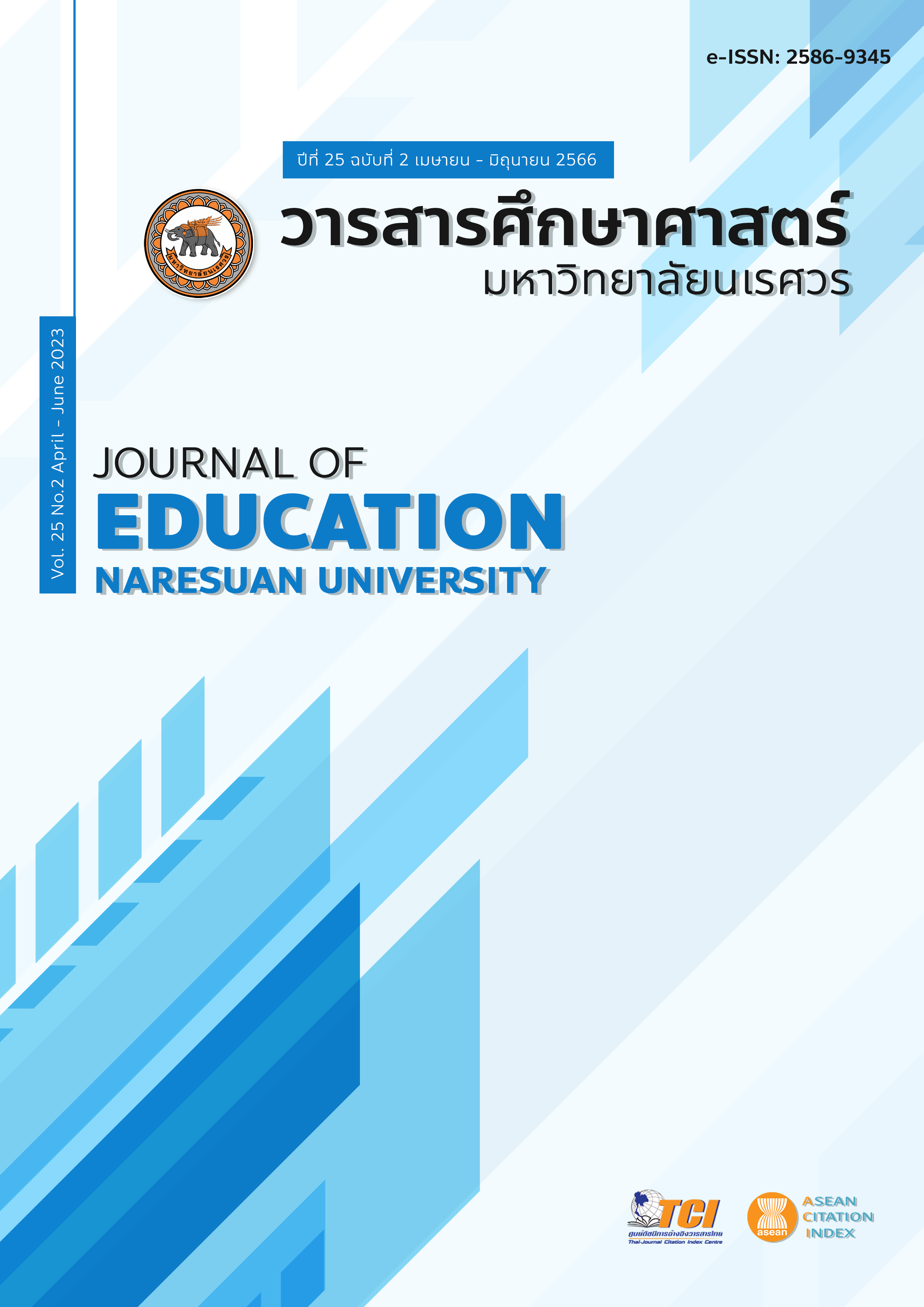THE EFFECTIVENESS OF USING DIGITAL WEIGHT LOSS APPLICATIONS TO PROMOTE HEALTHY LIVING
Main Article Content
Abstract
The aim of this research was to use the effectiveness of using digital weight loss applications to promote healthy living. The tool used in the research was Line the use of health promotion media by popular social media integration such as Line and health care and weight control program. The samples were Naresuan University students who were overweight with the excess of standard BMI 30 people. In addition, it took 12 weeks to do the experiment. research tools : The questionnaire developed by the researcher with reliability of.92 was used to collect data. The data were then analyzed in terms of mean, standard deviation, one – way Anova, and LSD testing method. The assigned statistical significant level in this research was .05 It was an indication of health care of Naresuan University students for weight control by the overall exercise behavior for research and practice. Due to the follow-up, the result found that all 30 people of the samples were found to be successful in health care and weight loss. Furthermore, weight control program was the Aerobic exercise and Cardio program showed 4.5% in weight loss. Consequently, the satisfaction evaluation result showed that the samples of health promotion and weight loss group had the mean at the high level ( = 4.87, SD = 0.21).
Article Details

This work is licensed under a Creative Commons Attribution-NonCommercial-NoDerivatives 4.0 International License.
The owner of the article does not copy or violate any of its copyright. If any copyright infringement occurs or prosecution, in any case, the Editorial Board is not involved in all the rights to the owner of the article to be performed.
References
Arps, E. (2014). The use of internet and mobile phone based health promotion interventions in youth populations. Auckland: Health Promotion Forum.
Bailey, J. V., Pavlou, M., Copas, A., McCarthy, O., Carswell, K., Rait, G., Hart, G., Nazareth, I., Free, C. J., French, R., & Murray, E. (2013). The Sexunzipped Trial: optimizing the design of online randomized controlled trials. Journal of Medical Internet Research, 15(12), e278. DOI: 10.2196/jmir.2668
Balatsoukas, P., Kennedy, C. M., Buchan, I., Powell, J., & Ainsworth, J. (2015). The role of social network technologies in online health promotion: A narrative review of theoretical and empirical factors influencing intervention effectiveness. Journal of Medical Internet Research, 17(6), e141. DOI: 10.2196/jmir.3662
Ding, E. L., Prescott, M. R., Watson, K. T., Bui, N., Makarechi, L., & Zoughbie, D. E. (2013). Microclinic social network lifestyle intervention for weight loss and obesity management: A 10-month randomized controlled trial. Circulation, 128(24), 2706-2706.
Gold, J., Pedrana, A. E., Sacks-Davis, R., Hellard, M. E., Chang, S., Howard, S., Keogh, L., Hocking, J. S., & Stoove, M. A. (2011). A Systematic Examination of the Use of Online Social Networking Sites for Sexual Health Promotion. BMC Public Health, 11, 583. https://doi.org/10.1186/1471-2458-11-583
Gold, J., Pedrana, A. E., Stoove, M. A., Chang, S., Howard, S., Asselin, J., Llic, O., Batrouney, C., & Hellard, M. E. (2012). Developing health promotion interventions on social networking sites: Recommendations from the face space project. Journal of Medical Internet Research, 14(1), e30. DOI: 10.2196/jmir.1875
Kumar, S., & Preetha, G. (2012). Health promotion: An effective tool for global health. Indian Journal of Community Medicine, 37(1), 5-12. DOI: 10.4103/0970-0218.94009
Norman, C. D. (2012). Social media and health promotion. Global Health Promotion, 19(4), 3-6. DOI: 10.1177/1757975912464593


